


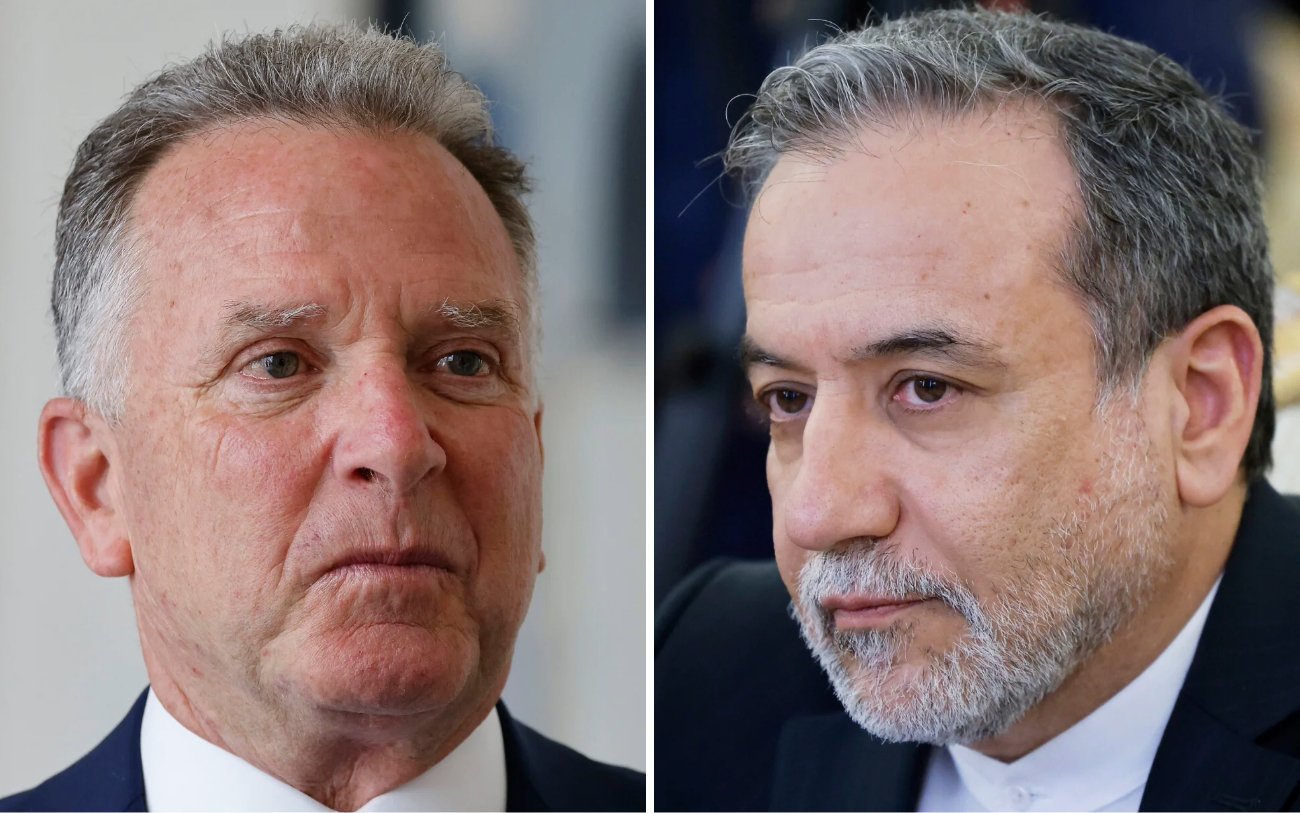
Iran and the United States wrapped up nuclear talks in Oman on Sunday with no apparent breakthrough in a public standoff over enrichment, but with both sides confirming plans for future negotiations.
It was the fourth round of the talks that began nearly a month ago, marking the highest-level contact between the two foes since Washington withdrew in 2018 from a landmark nuclear deal during President Donald Trump’s first term.
Both sides had reported progress in the previous three rounds, and on Sunday, Iran said the meeting was “difficult but useful,” while a senior US official said Washington was “encouraged.”
In a post on X, Iran’s foreign ministry spokesman Esmaeil Baqaei said the talks could help “better understand each other’s positions and to find reasonable and realistic ways to address the differences.”
Baqaei earlier said negotiators would push for relief from US sanctions.
The US official, speaking on condition of anonymity, said Washington was “encouraged by today’s outcome and look(s) forward to our next meeting, which will happen in the near future,” without specifying when.
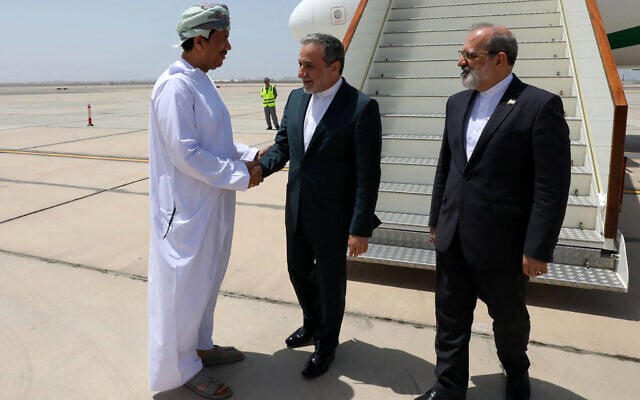
Baqaei said that the “next round will be coordinated and announced by Oman.”
According to the US official, the talks were “both direct and indirect, and lasted over three hours.”
“Agreement was reached to move forward” and “continue working through technical elements,” the official added.
Iran entered the talks saying that its right to maintain uranium enrichment was “non-negotiable,” while Washington’s chief negotiator Steve Witkoff has said that the American demand to stop enrichment was a “red line.”
Iranian Foreign Minister Abbas Araghchi, who led Tehran’s delegation, said in a video before departing for the Omani capital Muscat that “enrichment capability is one of the honors” of Iran.
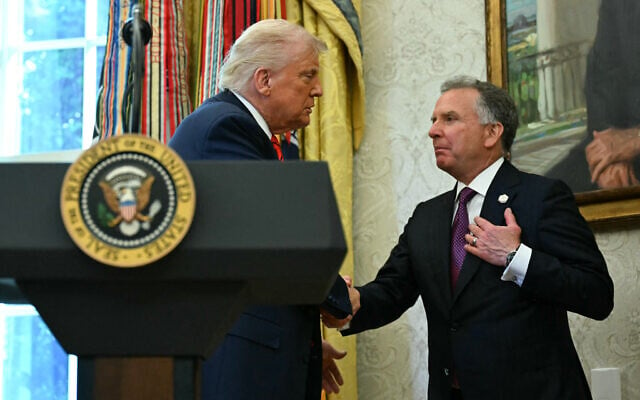
The talks come amid a flurry of diplomatic activity in the region, with US President Donald Trump heading to the Gulf for his first major foreign tour next week, and Araghchi just back from Saudi Arabia and Qatar.
The fourth round that took place on Sunday was initially scheduled for May 3, but was delayed, with mediator Oman citing “logistical reasons.”
Yousuf Al Bulushi, chairman of the Muscat Policy Council think tank, said that a breakthrough “will take quite some time, but I’m optimistic.”
He warned, however, that both sides had lost precious time during past negotiations, trying to clarify public statements “instead of focusing solely on talks.”
Public pressure “is a tactic in negotiations… but this is really impacting the atmosphere” at the table, said Bulushi.
Western countries, including the United States, have long accused Iran of seeking to acquire nuclear weapons, while Tehran insists that its nuclear program is for peaceful purposes.
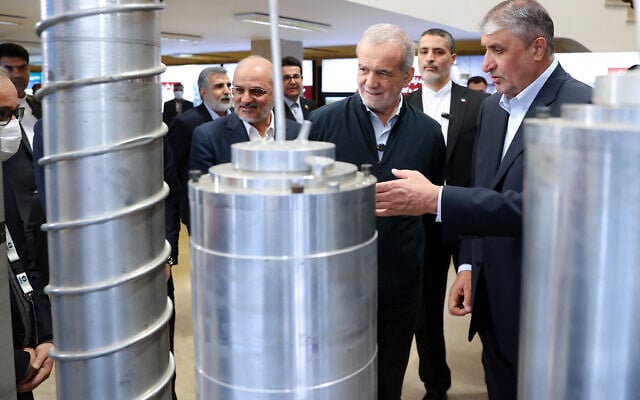
Iran currently enriches uranium to 60-percent purity — far above the 3.67% limit set in the 2015 deal with the United States and other world powers, and a short technical step from the 90% needed for weapons-grade material. Tehran regularly threatens to destroy Israel, and its uranium enrichment level is far higher than necessary for civilian uses.
Witkoff, Trump’s Middle East envoy, said in a Friday interview that Iran’s “enrichment facilities have to be dismantled.”
“That’s our red line. No enrichment. That means dismantlement. It means no weaponization. And it means that Natanz, Fordow and Isfahan — those are their three enrichment facilities — have to be dismantled,” he told US right-wing outlet Breitbart News, after initially suggesting flexibility on Tehran maintaining low-level enrichment of uranium for civilian purposes.
Araghchi has repeatedly defended Iran’s right to enrich uranium.
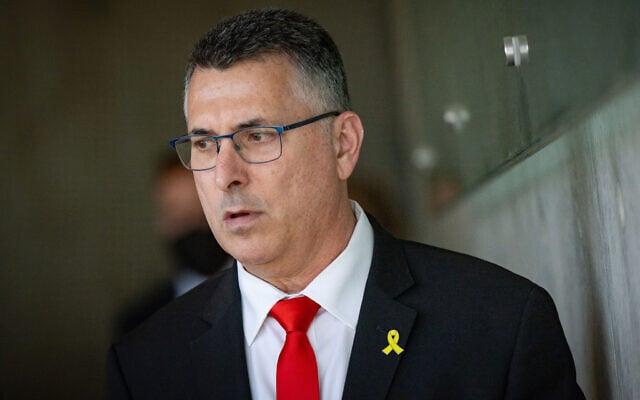
At a press conference in Jerusalem on Sunday, Foreign Minister Gideon Sa’ar said Iran’s uranium enrichment facilities “must be dismantled,” and that the US and Israel agree on this issue.
“The most dangerous regime must not be allowed to obtain the world’s most dangerous weapon,” he said.
Sa’ar said he “agrees very much” with comments made over the weekend by Witkoff, who said enrichment facilities “have to be dismantled” for Washington to take it at its word that it does not want nuclear arms.
“I think this is the right approach and we hold the same view on the matter,” Sa’ar said.
Asked whether Israel is concerned about recent foreign policy moves by Trump that seemed to sideline Jerusalem on key regional issues, Sa’ar said, “We are coordinated. It doesn’t mean we must fully agree one hundred percent on every issue.”
“The US is a sovereign state, Israel is a sovereign state. But I believe that we have very, very big common grounds with positions in this US administration, more than in the past…I think the US is our greatest friend and President Trump is a great friend of Israel, and we will work together; we are working together,” he added.
Sa’ar noted that “there is no other world leader” with whom Trump has spent more time than Prime Minister Benjamin Netanyahu.
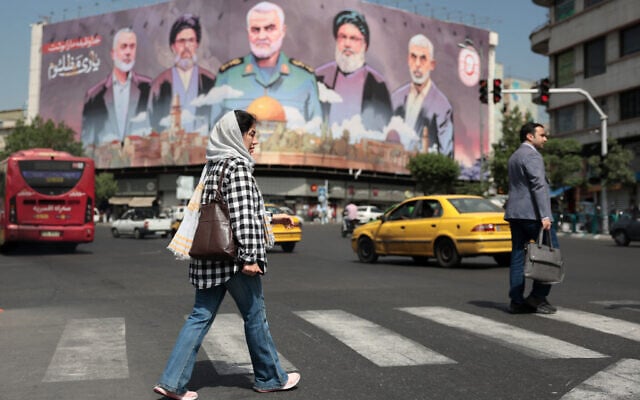
Netanyahu, who is deeply skeptical of the Iran-US talks, has called for all of Tehran’s nuclear facilities to be dismantled and for its ballistic missile program to be stopped as part of any credible deal.
Tehran has insisted that the talks be solely focused on the nuclear issue and the lifting of sanctions, ruling out negotiations on military capabilities.
Jerusalem is reportedly unhappy with the state of the talks, which were said to be developing into a largely similar framework to the 2015 Joint Comprehensive Plan of Action, or JCPOA, which was signed by then-US president Barack Obama and was panned at the time by Netanyahu as disastrous for Israel. Trump also strongly maligned the accord.
